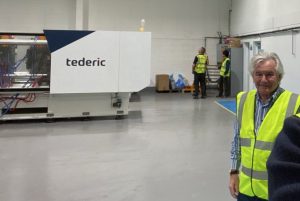LEP at heart of Liverpool devolution debate

BUSINESSES across the Liverpool are having a say in the city’s ongoing devolution discussions thanks to the unique position of the City Region LEP, led by chairman Robert Hough.
The Liverpool City Region LEP is a “members’ LEP” and as such provides direct interface between the private sector and government, a status which no other LEP enjoys.
The Liverpool LEP has proved to be hugely influential, having secured more than £1bn of government investment for the City Region, through its Growth Plan project, Growing Places Fund and the European Commission’s Motorways of the Sea initiative and other funding streams.
“We continue to set ourselves apart from the other 38 LEPs established across England,” said Hough. “Our membership of the City Regional Combined Authority (including councils of Halton, St Helens, The Wirral, Sefton and Knowlsey) is similarly unique.
“We are the only LEP to have voting rights on the combined authority, truly representing the private sector.”
The LEP has already been involved in the combined authority’s discussions over Liverpool devolution with an announcement expected in the forthcoming Autumn Statement after joining forces with the Liverpool & Sefton Chamber of Commerce, Downtown Liverpool, Federation of Small Businesses, Professional Liverpool, the Institute of Directors, Liverpool BID Company and the Social Enterprise Network.
In the event of a positive outcome, the inclusion of the LEP in the debate could prove crucial following the announcement recently by Communities Secretary Greg Clark that the Government would not sign any more devolution deals with councils unless there is the full backing of the local enterprise partnership.
In a speech, Clark said local businesses needed to play a key role as power is devolved from Whitehall.
He said: “These partnerships you created between local businesses and local government have been a phenomenal revolution. And this has completely changed the way investment and growth is done in this country.”
Those words have given encouragement to Hough and the private sector across Merseyside that they can follow the Manchester example and get genuinely meaningful devolution.
“Liverpool is in an unusual position in the sense of having a formal body which is the LEP, which can effectively be the conduit with business and the conversation about how we can effectively shape devolution and so business can have a substantive role in the devolution conversation,” said Hough.
“It’s a devolution of power to local authorities that will clearly and quite rightly have greater influence and discretion over everything, but it’s very important that the voice of the private sector still remains there, otherwise there is a dilution.
“We have that strong stake in the ground and therefore devolution is something which has to be positive. In that new structure there has to be an element of private sector representation and the LEP provides that.”
Meanwhile, the Liverpool LEP is continuing to wield influence across key sectors of business activity in the region.
Through its Inward Investment Hub, it has secured new investment from companies such as Seadrill, as well as renewable energy experts H2 Energy.
The LEP has also developed details Sector Skills for Growth Agreements between businesses and employment and skills providers in key sectors of advanced manufacturing, low carbon, Superport, life sciences, visitor economy, financial and professional services and digital and creative.
Although not without its controversy, Hough sees another of Liverpool’s future strengths at the centre of the North West fracking industry.
“Liverpool is potentially a fracking hub,” he said. “In terms of when fracking establishes itself, as it surely will in the North West, then Liverpool is well placed to support it as a hub – in terms of training, manufacturing parts for equipment and the transportation of the big equipment through the Mersey.”








